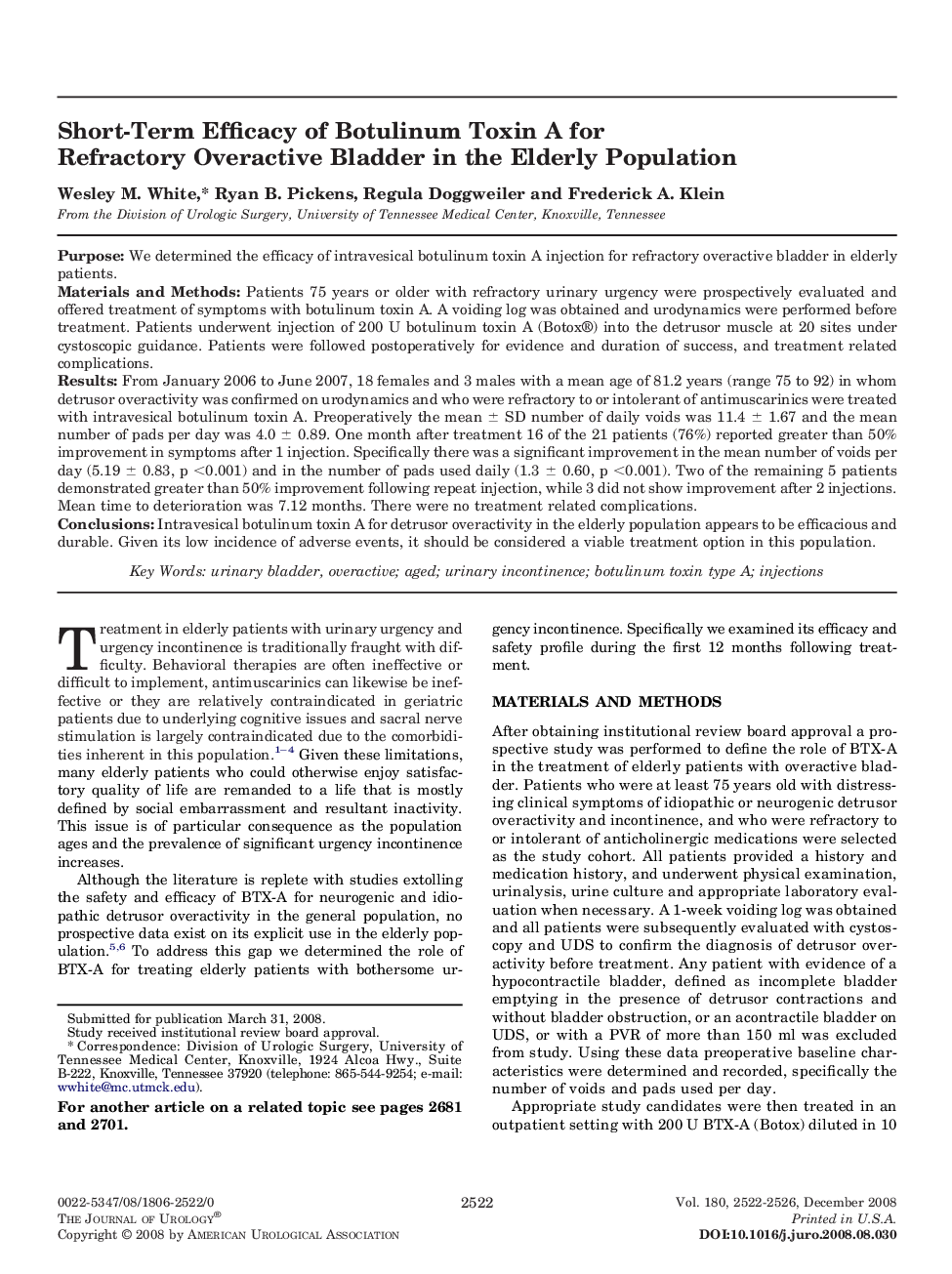| Article ID | Journal | Published Year | Pages | File Type |
|---|---|---|---|---|
| 3870175 | The Journal of Urology | 2008 | 5 Pages |
PurposeWe determined the efficacy of intravesical botulinum toxin A injection for refractory overactive bladder in elderly patients.Materials and MethodsPatients 75 years or older with refractory urinary urgency were prospectively evaluated and offered treatment of symptoms with botulinum toxin A. A voiding log was obtained and urodynamics were performed before treatment. Patients underwent injection of 200 U botulinum toxin A (Botox®) into the detrusor muscle at 20 sites under cystoscopic guidance. Patients were followed postoperatively for evidence and duration of success, and treatment related complications.ResultsFrom January 2006 to June 2007, 18 females and 3 males with a mean age of 81.2 years (range 75 to 92) in whom detrusor overactivity was confirmed on urodynamics and who were refractory to or intolerant of antimuscarinics were treated with intravesical botulinum toxin A. Preoperatively the mean ± SD number of daily voids was 11.4 ± 1.67 and the mean number of pads per day was 4.0 ± 0.89. One month after treatment 16 of the 21 patients (76%) reported greater than 50% improvement in symptoms after 1 injection. Specifically there was a significant improvement in the mean number of voids per day (5.19 ± 0.83, p <0.001) and in the number of pads used daily (1.3 ± 0.60, p <0.001). Two of the remaining 5 patients demonstrated greater than 50% improvement following repeat injection, while 3 did not show improvement after 2 injections. Mean time to deterioration was 7.12 months. There were no treatment related complications.ConclusionsIntravesical botulinum toxin A for detrusor overactivity in the elderly population appears to be efficacious and durable. Given its low incidence of adverse events, it should be considered a viable treatment option in this population.
